
TMS Protect
Employee
Handbook
TMS Protect Employee Handbook for Security & medical Personnel
TMS Protect work extremely closely with all our clients to provide a superior security and medical solutions that remain unrivalled. We insist on a professional, helpful and friendly approach from all our employees with the highest level of service at all times.

COMPNAY DIRECTOR
Congratulations and welcome to team TMS Protect. We believe that what a strong group of people can accomplish together is much larger, far greater, and will exceed what an individual can achieve alone
Alone we can do so little; together we can do so much.
TMS value and appreciate all our employees, we totally understand that any team is only as great as it’s weakest link. We invest a lot of our time and effort into staff training, to ensure you are provided with the tools to perform your duties professionally and effectively.
We operate an open door policy to all our employees and take all suggestions and concerns seriously.
Shantelle Badman
Director of TMS Protect
employee resources
Information is everything and here at TMS Protect we believe in keeping that information completely transparent.
Our official documentation including our policies and procedures and generic risk assessments can be found here
GENERAL EMPLOYEE INFORMATION

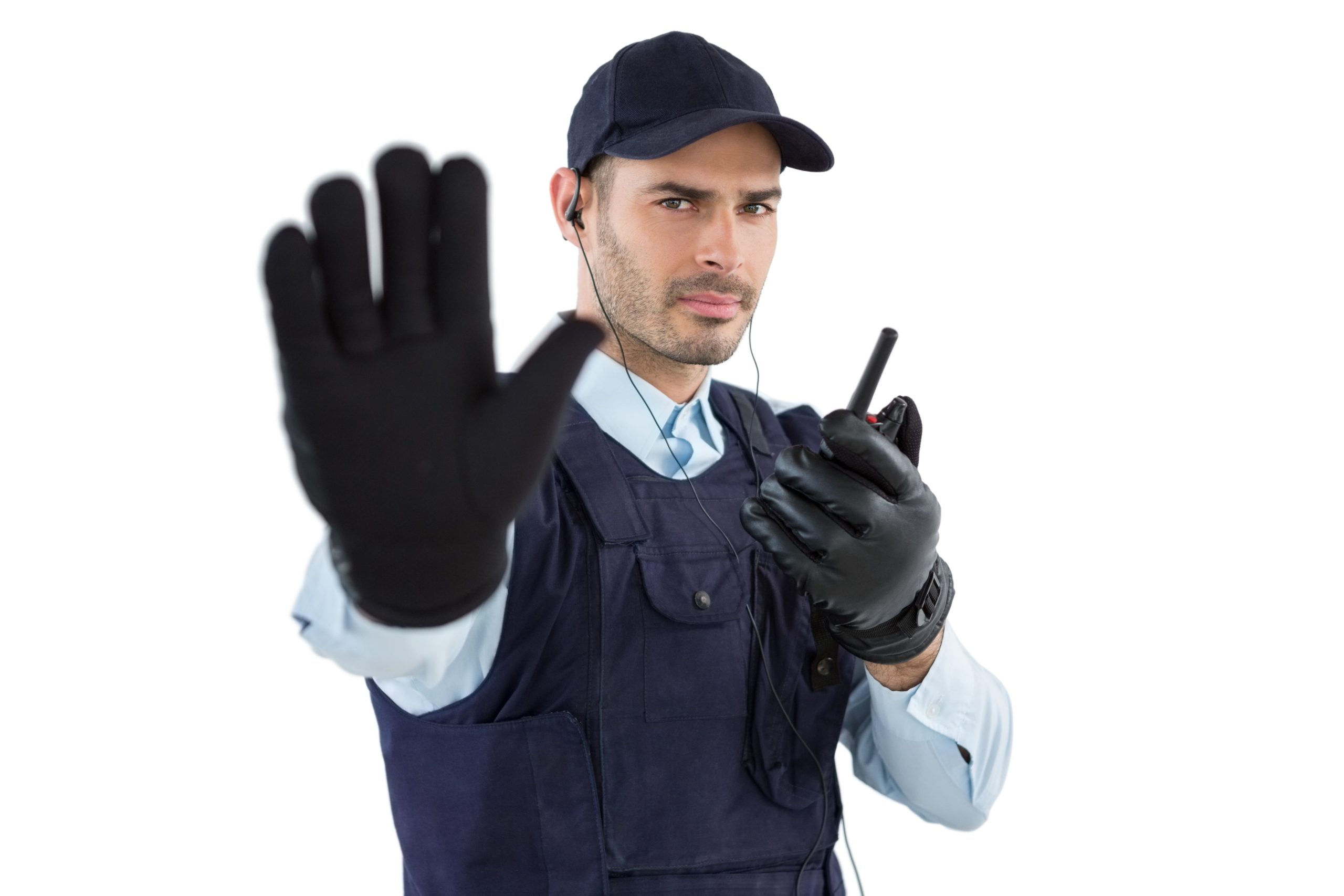
you should know
SUITABLE ATTIRE
Dress Code is almost always site/venue specific, however employees are always expected to attend work in a smart, clean and professional appearance.
For the majority of our existing venues and sites, staff are required to wear BLACK combats/trousers, black shoes or boots (suitable for site/venue), black socks, black belt and if required black beanie hat (no branding unless TMS Protect and for night-shift only). Security staff should also wear a black polo-shirt with collar turned down, sleeves must NOT be rolled up. During colder climates security may wear a black Jumper, which at no point is to be tied around the waist.
When off duty or during breaks you should remove any identifying garments as this creates a bad impression. It is imperative that you maintain a professional demeanour at all times. On occasion you may be required to wear smarter attire including a shirt, tie, trousers and smart shoes, however when this is required you will be notified in advance.
TMS Protect will provide colour-coded Hi-Vis Jackets that are identified with a unique number, these must be worn on the outside. Any PPE provided must be returned at the end of the shift or you will be charged for those items. Hi-Vis Jackets are colour-coded as follows, Orange Top for Safety Stewards, Yellow Top for Standard Security, Blue Top for Security Supervisors, All Navy for Response Teams and Blacks for Management Team. This is to help our clients and customers differentiate between roles and responsibilities.
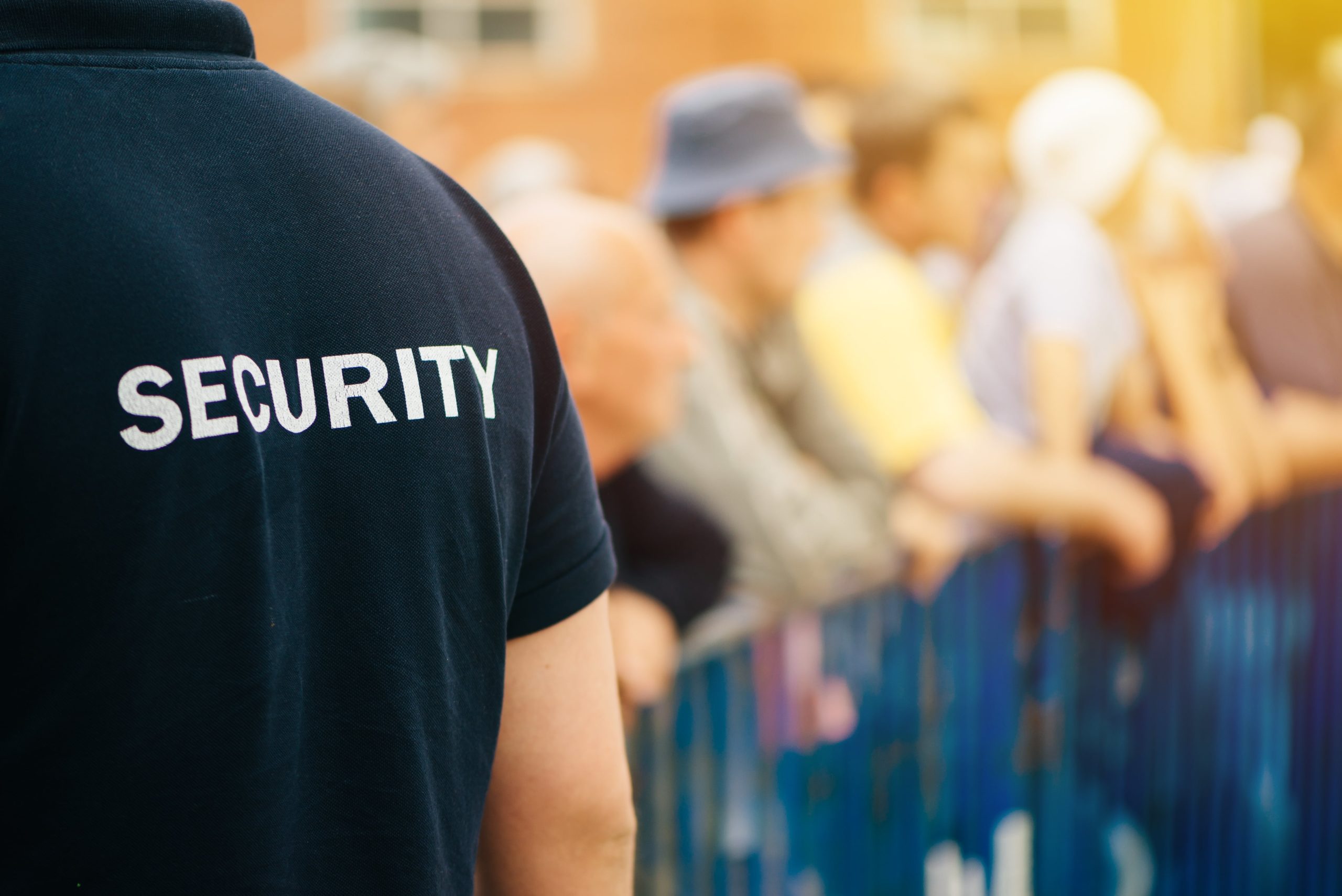
you should know
WEATHER PROTECTION
Employees are also advised to bring your own weather protection. We suggest employees bring black waterproof trousers, black wellington boots and sunscreen so they are prepared for all the elements.

you should know
ENVIRONMENTAL
We are committed to the campaign of “Staying Green”. Therefore, we ask all staff to bring a reusable water bottle with them. There are numerous water points throughout sites so plenty of points for obtaining a refill.
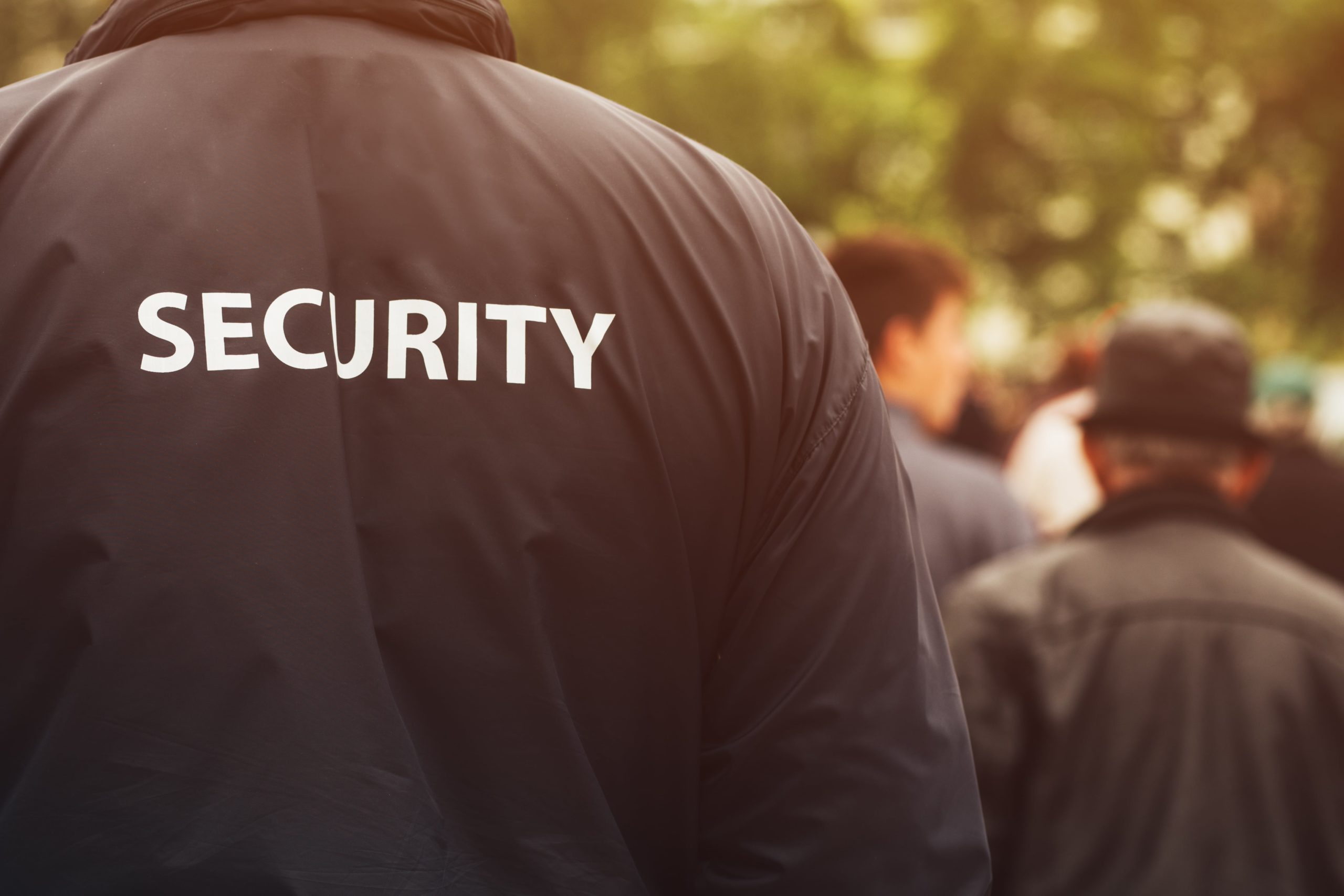
you should know
SIA LICENSED STAFF
All SIA employees must wear their SIA badge so it is visible at all times when on duty, except covert teams who must have their badge on their person. SIA officials often attend sites un-announced doing spot checks and they will prosecute individuals and companies that do not comply with this legislation. Badges should be worn in a suitable arm holder on the outer most layer or in the secure pockets provided on our TMS Protect Hi-Vis Jackets.
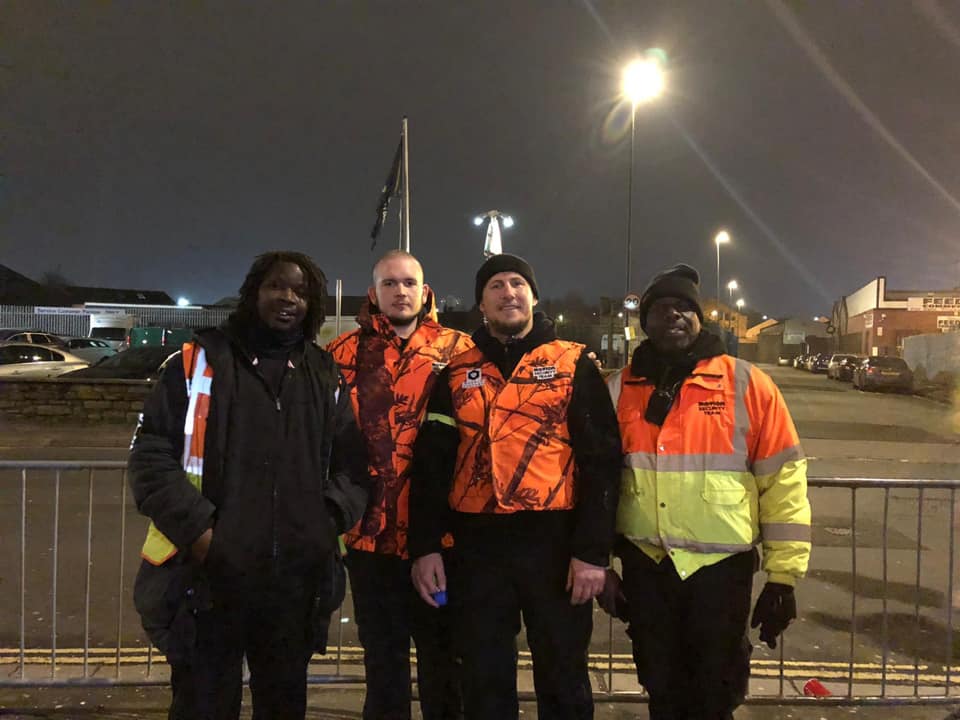
you should know
ATTENDANCE
All TMS Employees are expected to be on site at least 15 mins prior to the start of their shifts in order to sign-in and be ready to assume position on time. In the interest of professionalism we politely ask you leave any personal issues at home. When you come to work for TMS, we expect you to uphold our integrity and reputation for being polite, professional, and friendly.
When you arrive on site it is essential that you immediately sign-in, in accordance to the venue or site policy providing a paper trail for the venue and licensing. You must also start and end shifts on your scheduling app so that can check on attendance and time keeping. Repeated late arrivals will constitute as gross misconduct as this jeopardises the venue/site license and brings our business into disrepute. Failure to sign in and out may result in you not getting paid for that shift.

you should know
TRAINING
TMS recognises the importance and value of regular training to keep our employees to the standards we require.
Our bespoke training programs include; drug awareness, advanced physical intervention, conflict resolution, customer care, first aid courses, fire safety, counter terrorism and a development program to progress team leaders, supervisors and management within the company.
For those working festivals and events our 3-day (EM-Power) in-house training program aimed specifically at spectator safety, crowd control, advanced levels of conflict resolution and physical intervention must be completed.
This is mandatory training for all TMS employees. If you have not completed our in-house training program you must inform your superiors who will make suitable arrangements for your training to be conducted in the very near future.
The majority of our in-house training is provided free of charge and validated with a certificate of attendance. Where official certification is required we will pass these fees onto our employees.
We will consider all candidates for all training programs provided they demonstrate the aptitude and willing to undertake the training they are applying for.
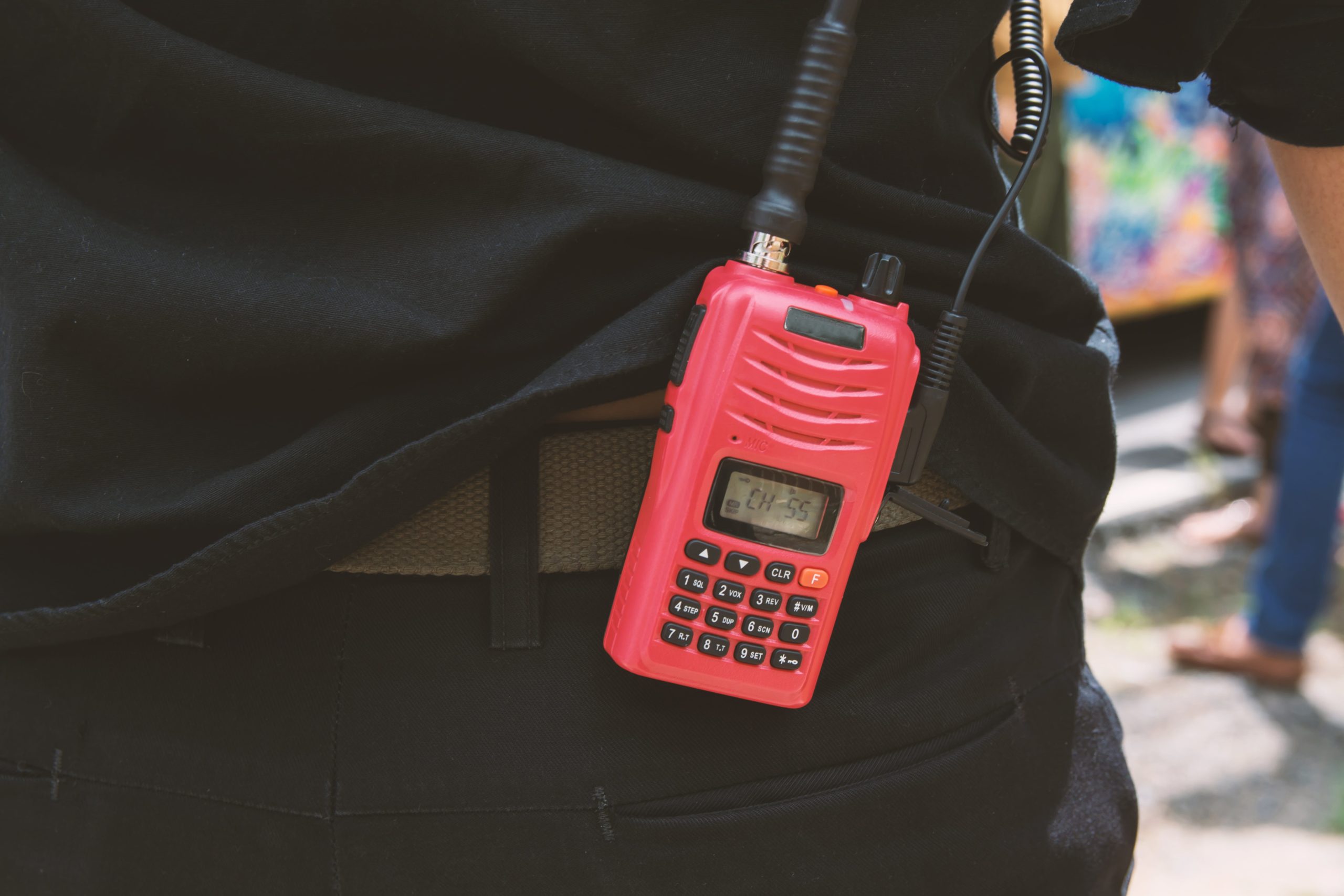
you should know
EQUIPMENT
TMS Protect and Event Organisers will provide you with adequate radio equipment to perform your duties as a security operative, these will be assigned to you by unique identifying number at which point they become your responsibility. Any losses or damages will be charged for, therefore you must take good care of equipment in your possession and ensure they are signed back in at the end of the shift. Other equipment you should have includes; a working torch, suitable gloves, hand sanitiser and protective eye wear where required.

you should know
BRIEFINGS
All staff will be given a general briefing prior to your shift. This is usually conducted by the venue or site management and includes specifics about timings, tickets, wrist bands, expected capacity. any known issues and much more. Where possible these will be finished by the security manager or head door who will provide some event specifics and any other information you would not normally be expected to know about. A more thorough job specific/position related briefing will be given by your supervisor once you are positioned. Our staff handbook is available online at all times for more generic information about your role.

you should know
Induction
All staff will be given a site tour before the start of their first shift with particular attention and detailed explanation of fire/emergency exits and evacuation protocols. Included in site specific handbooks will be maps and all procedures enabling staff to conduct themselves in alignment with current legislation, venue/site specific protocols and to the demanding standards set by TMS Protect.

you should know
Travel and Parking
You will be responsible for all aspects of your own travel and parking, although we will try to arrange something on site where possible. In any event, vehicles are left at your own risk.

you should know
Alcohol and Drug use
TMS take a zero tolerance approach to Alcohol and Drug abuse. Any employee found to be under the influence of alcohol or drugs whilst on location will be immediately removed from their duties, be ejected from the site and denied any future work.
Please be advised that TMS carry out Alcohol and Drug testing unannounced and you may be subject to random testing.

you should know
Smoke Free
Due to changes in the Smoke Free (Signs) Regulations 2012, smoking is not permitted within any working area or vehicle. No smoking signs will be placed in any hire/working vehicle and in all tented arenas. Smoking is not permitted whilst on duty. Smoking should be done discretely whilst you are on a break and not within an enclosed area. You must remove any identifying garments before you take a smoke break.

you should know
Noise at work
Staff working in ear protection zones will be required as a condition of contract to ensure that they wear ear protection. Ear protection will be provided.

you should know
Use Of Language
We will NOT tolerate any abusive and/or aggressive language being spoken to event-goers. All event- goers must be spoken to in a polite and courteous manner at all times. All employees must remain diplomatic and sensitive when dealing with any heightened situation. There are more complaints received about abusive and aggressive language from staff than any other complaint! We take this matter very seriously and disciplinary action will be taken accordingly. Remember your Hi-Vis will identify you so you can and will be held accountable for your own actions.
you should know
RAPID RESPONSE
Some people can become highly volatile and extremely hostile when incidents occur. As a vital part of the Response Team you will need to make lighting fast decisions and react accordingly de-escalating, containing / isolating and possibly extracting when required. This all requires military like precision with each team understanding their role and each team member knowing their individual duties to achieve the overall task.
conduct
It is essential to remain impartial but decisive and to be firm but fair. You should not get into long debates over issues or you’ll be leaving yourself vulnerable. The longer others see you in a confrontation the more likely they are to involve themselves often multiplying the problem and leaving you outnumbered.
It is all to easy to get excited when responding to a call, but it is absolutely essential to remain calm, composed and calculated at all times. Remember to use dynamic risk assessments and continue to be aware the changing environment around you.
Secondary support
If when you arrive to an incident there is already a security team dealing with the incident then you need to recognize that you instantly become secondary support. If it looks as though the primary team is struggling to control/contain the situation then a switch may be required. If it looks as though the situation could potentially escalate then ensure you are close enough to act if required but distance yourself enough to not become imposing, which will likely make matters worse! As secondary support it is your job to keep your colleagues safe, creating the safest and shortest exit route for them. Continue to carry out your dynamic risk assessments whilst setting up a safe perimeter for your colleagues, before clearing a path to the nearest exit in order for your colleagues to withdrawal the offender if and only when necessary, keeping both them and the public safe at all times.
primary response
If you are the first to arrive to the incident you become the primary security team, carry out your dynamic risk assessment whilst on approach. At this time one of the team should take definite ownership of the incident and maintain a Lead role throughout. Ideally this will be a senior or more experienced member of the team or a member of the security management team. Remember that switching can occur where things become personal or heated. All primary team members must follow the clear and calm instructions of the Lead who will be ultimately responsible for all actions thereafter. The lead will need to remember the chain of events and be responsible for the written incident report following the incident. It is advised that someone in a non-lead role wears a body-cam and can record the incident from around 3ft to capture evidence that can be tried in a court of law. It is equally important that a non-lead role member is communicating with Control to advise them in real time how the situation is being dealt with, especially if things are escalating.
Lead should first try talking the offender down before implementing any form of physical intervention. Remember the law stipulates physical intervention requires two DS qualified security personnel. Only where you have a duty of care – say for co-workers and colleagues can you make an exception to this law.
If you arrive to a particularly violent incident you must take a mental note of everything that you see and try to contain the situation as best as possible isolating the two parties and keeping them a safe distance apart. Remove all parties involved keeping them separate. If you need to eject both parties you should eject at staggered times and where possible using different exits to avoid further confrontation at the perimeter.
RESPONders
If you are on a response team or are leaving a non vital fixed position or patrol route to assist, please use your radio to communicate that you are attending allowing Control and the HD/Management Teams to assess who will be tied up and be aware of how many security are in attendance! This is essential information, as this will allow management to have a better image in their head as to what areas are left potentially exposed and to stand down any additional teams not required! It is the job of management to consider the logistics of such an operation and send or withdrawal additional team members accordingly! You must also be aware that sometimes incidents are created as a decoy to a real threat, taking the security away from an area and leaving it vulnerable for potential attack.
Radios
The 2-way Radios used by security not only provide a visual deterrent to potential offenders but are also an essential tool in your role as a door supervisor. Therefore you MUST know and understand how and when to use radios correctly and effectively.
clarity
Please speak in a calm clear and concise manner using the queens English, often security or other members of staff will have the volume of their radio up high meaning that passers by will be subject to your use of radio. Professionalism is always of the utmost importance
call codes
Please start your radio call with a colour code to identify the nature of your call! The most important information are your CALL CODE and LOCATION
Remember that call signs can be upgraded at any time should matters escalate in any way!
That said you should constantly be trying to De-escalate all situations.
location
It is of paramount importance that you familiarise yourself with the location, boundaries and markers of not only your designated area but those of your colleagues too. This will enable you to respond more efficiently reducing risk to your colleagues
fixed positions
The security personnel placed on fixed positions in and around the arena should be briefed on profiling and reading the dynamics of the crowd. It is often the case that simply making a presence in the right place at the right time can prevent a potential situation from escalating. Prevention is always better than cure. As a response team you should also consider making as much of a presence as possible and reading any potential signs whilst you manoeuvre about.
your safety
It will remain essential that you stay hydrated and alert at all times. Please take care to regularly top up water in-take and eat little and often allowing the continuous release of energy and preventing injuries.
Our Team
TMS management
Our senior management team are more like family to us. they bring dynamics, experience and drive to our entire business operation
director
director
HR manager
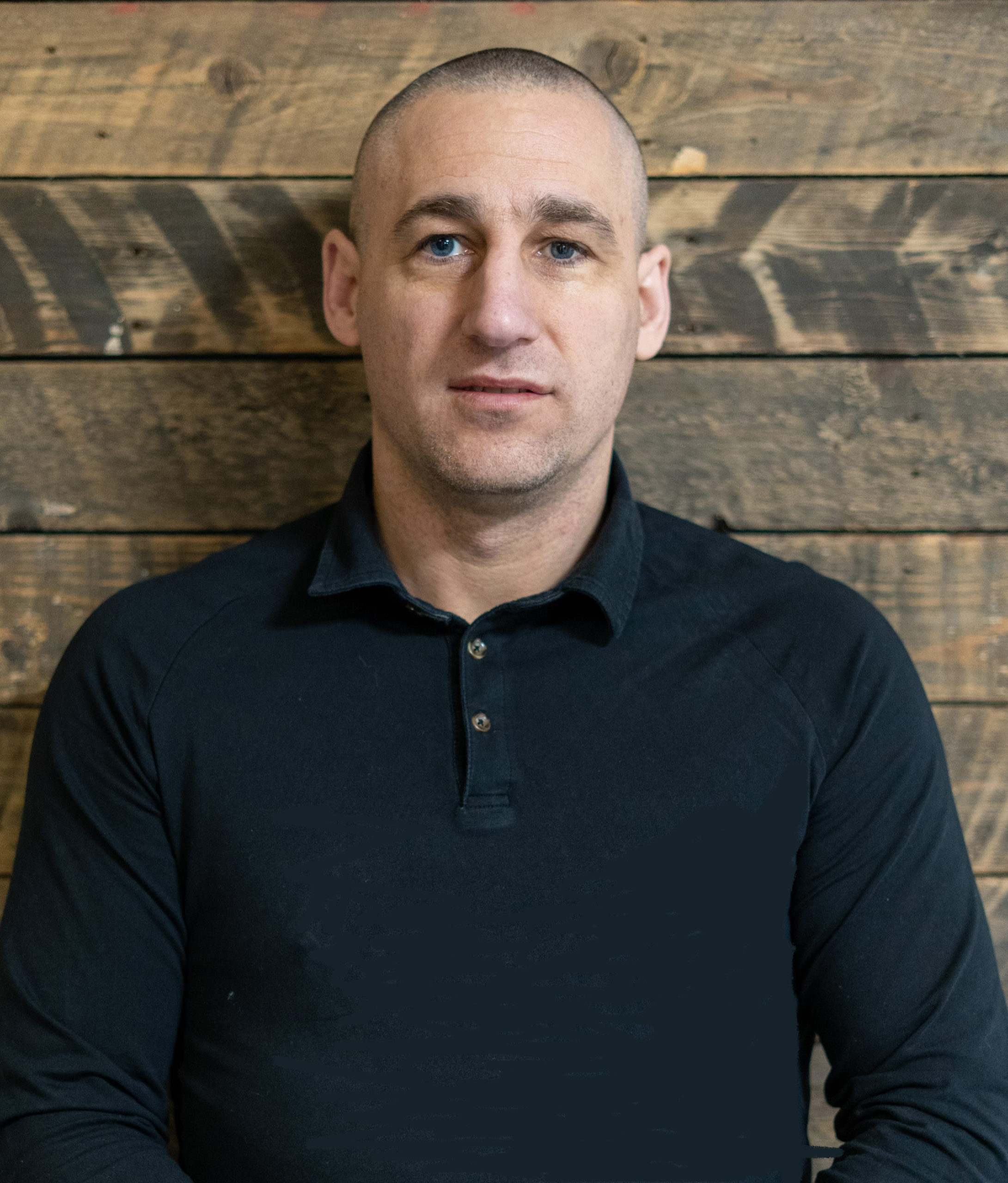
Training and Operations Manager
